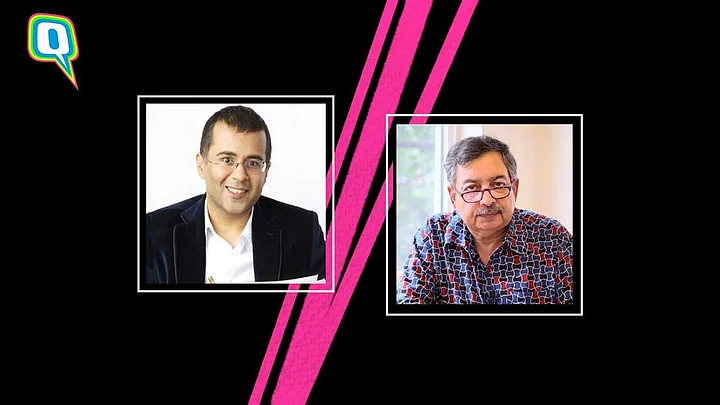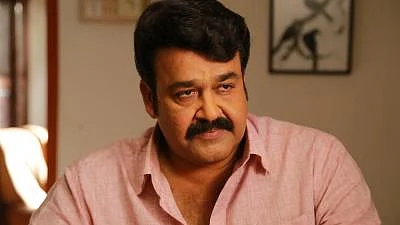(This is a personal blog and the opinions expressed below are the author’s own. The Quint neither endorses nor is responsible for the same.)

Being a woman on Indian social media right now means feeling unspeakable rage, inexplicable relief, and deep exhaustion all at once. Dozens of men across different professions are, finally, being rightfully and publicly called out for their harassment of their colleagues, partners and fans. Some of these names come as shocks. Some of these names behave very differently in public than they do in private. Some of these names appear as by-lines on articles about feminism. And yet, here we are today.
But, perhaps the other set is more worrying. Because some of these names come as no surprise.
No More Open Secrets
Some of these names have long been known to be creeps, sexists, seedy—call them what you will. The only difference is that their names have gone from being whispered in WhatsApp groups to being screamed by newspaper headlines. For those of us who knew, it is both a vindication and a worry.
These are just some names. There are, no doubt, hundreds of others. Names that don’t have armies of followers on Twitter; names that don’t dominate their professions.
Names that have no larger relevance or reputation. In short, names that wouldn’t make headlines.
These are the men we’ve encountered as women of India’s cities: men who form the larger pool that houses everyone exposed by the Indian #MeToo movement thus far. Men who claim to be one thing in the eyes of the world, and who turn out to be very different in the privacy of a bedroom or a WhatsApp chat or a cab. Where should the ordinary Indian woman go when she wants to call out the ordinary Indian man? Someone whose truth being exposed won’t get hundreds of retweets; won’t, possibly, get any reaction at all. But does that make it less of a revelation? No. Because of course we call out our predators to protect ourselves, but we also do it to protect the women around us.
Naming is Saving
We do it so that the next time anyone sees that name, they know what kind of creature they’re dealing with. Take the example of this one journalist now stepping down pending enquiry against him. His reputation for sleaziness had long preceded the news that has come out in the last few days. I’d come across it myself when a friend, in a group chat, told us about her conversations with him. It was, of course, her exercising her right to expose men of his nature. But it was also a warning to the rest of us: steer clear of this man. Don’t work with him. Don’t respond to him. Don’t expect anything but the worse. It was an extraordinary act of female solidarity.
Women who call out these men do a favour to women everywhere. They jeopardise themselves to make sure cycles of sexual and mental violence and abuse are stopped in their tracks, and no more women have to become victims.
It takes a degree of strength and courage most of us cannot even fathom, and it happens everyday in the most unlikely places. In group chats and DMs and women’s bathrooms and university corridors and office stairways. Because the uncomfortable truth is, most men behave very differently in public and very differently in private.
Let There Be Names
Think back to Raya Sarkar’s list from last year, which exposed the hypocrisy of Indian men in academia. Men who are probably better read on feminism than the average woman. Men who were well aware of what constitutes harassment and what constitutes consent, and chose to ignore the same. Some men whose names, once again, I had heard before.
It is easy to demonise these whispered confessions as slander or defamation, as premature or as judgements passed without due evidence or trial. But without them, and I have no doubts about this, there would be hundreds more victims of these men’s actions.
There would be women who would enter their lives, unsuspecting, believing them to be good men, and be left defenceless to discover the truth themselves.
The truth that even men educated in the best of India’s schools and universities, raised by the best of its homes and families, celebrated by the best of its industries and companies, can be creeps. Rapists. Molesters. Abusers. Misogynists. They just do a better job at hiding it.
We Are Listening Because...
This is a fact I’ve had to reconcile myself with over the past few years, both from personal experience and the experiences of women around me. There are men who will, for all intents and purposes, pretend to believe in equality, in the steps of women. There are some who go a step further: who will publicly pander to feminism to gain points in the eyes of their peers, especially women. Men who will express outrage on Facebook about rape culture but will still try to force themselves on you.
Men who behave one way in the public sphere and behave very, very differently in private. When such duplicity is at work, who can one turn to?
The answer is simple: the women who know these men. The survivors. Hear them. Believe them. There are witnesses everywhere; but society isn’t listening. Those of us who have something to lose, however, are. We are listening every day to stories of our friends, or their friends: of how he said this about her, or how he threatened to do this to her, or how he actually did do this to her and you need to stay away from him.
We are listening because if we don’t, we will pay a heavy price; might even pay with our lives. Every day, we are listening to names and we are listing names because these men cannot be allowed to walk around freely, wreaking havoc on our sisters and our friends and their sisters and their friends. Every day we’re retreating into our safe spaces and disappointedly realising how outnumbered we are. Every day we’re finding out that he too is one of them, and him as well, and he too, and he too, and he too.
(Annika Taneja is an advertising professional.)
(At The Quint, we question everything. Play an active role in shaping our journalism by becoming a member today.)




